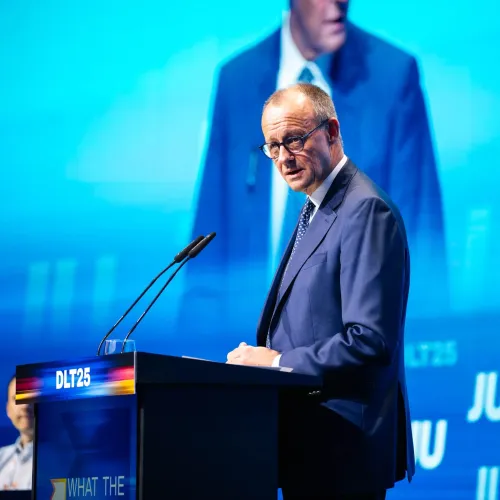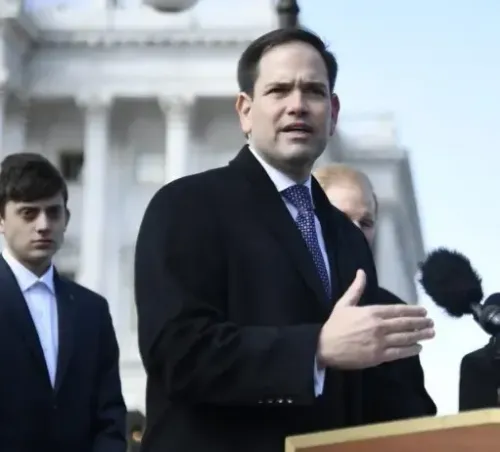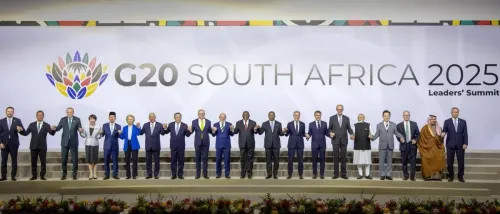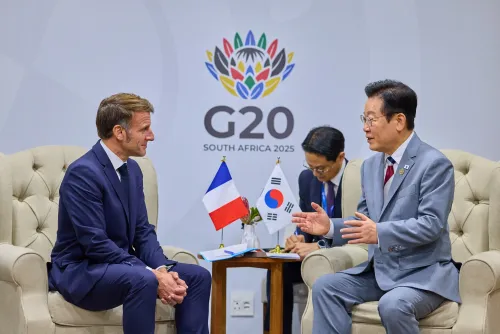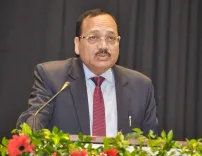Is Mike Waltz the New U.S. Ambassador to the UN?
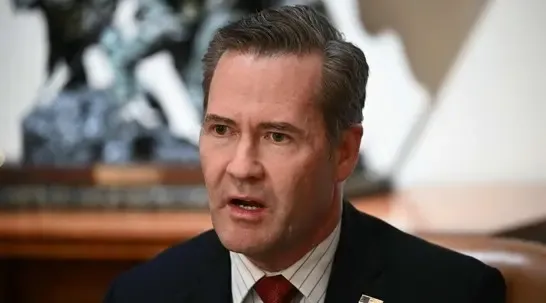
Synopsis
Key Takeaways
- Mike Waltz is appointed U.S. Ambassador to the UN.
- Marco Rubio will serve as interim National Security Advisor.
- Waltz's leadership may impact U.S. foreign policy significantly.
- His appointment follows the withdrawal of Elise Stefanik's nomination.
- Challenges lie ahead regarding alignment with Trump's national security strategies.
Washington, May 2 (NationPress) On Thursday, President Donald Trump announced the appointment of Mike Waltz, the former National Security Advisor, as the new U.S. Ambassador to the United Nations.
Marco Rubio, Secretary of State, will temporarily assume the role of NSA.
This marks the first significant shift in leadership during President Trump's second term.
President Trump shared on Truth Social, "I am delighted to confirm that I will be nominating Mike Waltz as the upcoming United States Ambassador to the United Nations."
He praised Waltz for his dedication, stating, "Throughout his military service, in Congress, and as my National Security Advisor, Mike Waltz has consistently prioritized the interests of our Nation. I am confident he will maintain this commitment in his new position."
The ambassadorial role became vacant after the U.S. administration retracted the nomination of Elise Stefanik, a House member, due to the urgent need for her presence to support the slim Republican majority.
In the meantime, the President indicated that Marco Rubio would execute duties as National Security Advisor while continuing his effective leadership at the State Department.
There were no updates regarding additional personnel changes; however, reports suggest that several of Waltz's National Security Council appointments may also be exiting, including his Deputy, Alex Wong.
Waltz had been under scrutiny for weeks following the sharing of military strategies concerning the Houthis in Yemen with a group of Trump administration officials via a messaging app called Signal.
This group included Vice-President J.D. Vance, Secretary of State Marco Rubio, Secretary of Defence Pete Hegseth, Treasury Secretary Scott Bessent, and others.
Additionally, Jeffrey Goldberg, Editor-in-Chief of The Atlantic, was part of the group, where he discussed specific weapons and timing details shared by Defence Secretary Hegseth.
According to The Wall Street Journal, "Trump and senior officials had expressed frustration with Waltz even before the Signal incident."
"Waltz's appointments were criticized for lacking appeal to Trump's MAGA base, and he encountered challenges in conveying the President's national security objectives on screen, a once recognized strength of the former Florida Congressman," the Journal continued, citing sources close to President Trump.
Despite the criticisms, President Trump had publicly backed both Waltz and Hegseth, who has faced increased scrutiny due to a separate Signal group involving family and lawyers.
While Waltz's departure comes relatively early in President Trump's second term, it still surpasses the tenure of Mike Flynn, the first of four National Security Advisors during Trump's initial term, who left after just 24 days.
Waltz is a former House member who co-chaired the India Caucus with Democrat Ro Khanna, and his appointment was widely celebrated among those monitoring U.S.-India relations.

